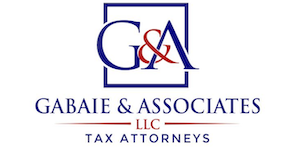As a resident of Maryland, if you have income from any source, you probably also have a responsibility to pay both Maryland state and federal income taxes. If you don't file your taxes or make certain mistakes you may be accused of income tax fraud. If the IRS or the State of Maryland believes that you have intentionally tried to sidestep your obligations to pay taxes, you can be subject to some very harsh penalties. It is important to clear up any dispute with the IRS or state tax authorities as early as possible. At Gabaie & Associates, LLC, we are prepared to help you with your income tax fraud dispute. Call our tax fraud attorneys today to schedule your free consultation.
What is Tax Fraud in Maryland?
Tax fraud refers to the intentional effort to evade current tax law. The IRS understands that the income tax code is extremely complex. It understands that mistakes will happen from time to time. Simple mistakes or negligence will not be considered tax fraud. However, you are required to complete your annual income tax return to the best of your knowledge and ability. You are highly encouraged to hire a professional who is well-versed in applicable state and federal tax laws to complete your return. This will reduce the likelihood that you make a mistake on your return.
Why is it important to reduce mistakes? Mistakes can trigger an audit. When the IRS (or state) looks into your return, they may find a variety of issues. If the government believes that you have understated your tax liability, you can be subject to penalties and interest. If during the audit process, the government believes that you have intentionally tried to avoid your responsibility to pay taxes, they may accuse you of tax fraud.
Signs of Tax Fraud
There are certain signs and indicators of fraud that the IRS will be on the lookout for during an audit. Common signs of tax fraud include:
- Intentionally failing to file a required income tax return
- Understating income earned during the year
- Failing to report cash income
- Multiple cash transactions
- Knowingly refusing to pay taxes that are due
- Preparing and filing a false return
- Claiming non-existent dependents
- Overstating deductions and expenses
- Providing inconsistent information
- Not having required documentation for business income and expenses
- Claiming personal expenses as business expenses, and
- Using a false Social Security Number.
You will have the opportunity to answer questions about any irregularities that the IRS may discover during the course of an audit. If the agency asks to see certain backup documents or files to support the information you have stated on your return, you are obligated to comply. Remember, anything that you have stated on your income tax return must be specific and supported by documentation. In fact, you have to keep those backup documents for at least three years after filing a return. If you don't have anything to support the numbers and calculations on your return, the agency may suspect fraud.
Who Commits Tax Fraud?
You may suspect that businesses are responsible for most of the tax fraud in the country. However, it is the individual taxpayer that is typically involved. In fact, three-quarters of all tax fraud cases involve individuals. Many of these tax fraud issues, however, do involve the individual's business operation.
Most tax fraud issues arise when taxpayers are self-employed or work as independent contractors. It can be easier for these individuals to hide or underreport income. This is particularly true if a business or service primarily involves cash transactions. Self-employed individuals are encouraged to keep a very detailed ledger of income and expenses.
What are the Penalties for Tax Fraud?
The consequences can be harsh if the state or IRS determines that you have intentionally defrauded the government. There are two distinct penalties: criminal and civil.
Criminal Tax Fraud Penalties
It is illegal to intentionally defraud the IRS. There are many ways that you can commit a crime of tax fraud. The penalties will depend on the specific type of tax fraud of which you are accused.
Civil Tax Fraud Penalties
If you understate your income, claim dependents that don't exist, or overstate your business expenses, the IRS may accuse you of tax fraud and impose a civil penalty. The civil penalty for tax fraud is the equivalent of 75 percent of your tax liability, plus interest. So, if you owe $100,000 in taxes, the government can impose a penalty of $75,000 if it determines you have committed tax fraud. After the penalty, you will owe $175,000 plus any interest that accrues during any period of non-payment.
If you cannot pay your tax bill, the government has the authority to place a lien on your property, seize your assets, and even garnish your wages. The consequences of tax fraud can be immediate and long-lasting.
Get Help Fighting Tax Fraud in Maryland Today
If the IRS or state of Maryland suspects that you may have committed tax fraud, you need to speak with an attorney immediately. Call the Maryland tax attorneys at Gabaie & Associates, LLC to schedule a free consultation. We will review your tax issue, determine the best strategy for your specific case, and help you resolve your dispute with the government. You do not want to let a tax issue linger. If you do not act right away you could be subject to harsh penalties, fines, and even time behind bars. Call us today to learn more.
